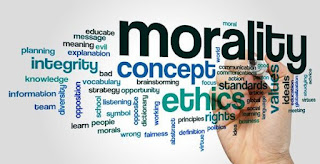McConnell D, Broome M, Savulescu, J.
Journal of Medical Ethics
Published Online First: 19 August 2022.
doi: 10.1136/jme-2022-108442
Abstract
Psychiatric involvement in patient morality is controversial. If psychiatrists are tasked with shaping patient morality, the coercive potential of psychiatry is increased, treatment may be unfairly administered on the basis of patients’ moral beliefs rather than medical need, moral disputes could damage the therapeutic relationship and, in any case, we are often uncertain or conflicted about what is morally right. Yet, there is also a strong case for the view that psychiatry often works through improving patient morality and, therefore, should aim to do so. Our goal is to offer a practical and ethical path through this conflict. We argue that the default psychiatric approach to patient morality should be procedural, whereby patients are helped to express their own moral beliefs. Such a procedural approach avoids the brunt of objections to psychiatric involvement in patient morality. However, in a small subset of cases where patients’ moral beliefs are sufficiently distorted or underdeveloped, we claim that psychiatrists should move to a substantive approach and shape the content of those beliefs when they are relevant to psychiatric outcomes. The substantive approach is prone to the above objections but we argue it is nevertheless justified in this subset of cases.
(cut)
Helping people elaborate a conception of morality has little risk of coercion and damage to the therapeutic relationship because the patient is requesting that content and is not committed to a conflicting moral position. Of course, it would be wrong to simply indoctrinate the patient so, to avoid that, the process of moral development should be patient-led as much as possible. However, if the moral views the patient gravitates towards in this process are clearly unreasonable, then the psychiatrist has an obligation to guide the patient’s views back within the bounds of reasonableness.
Psychiatrists are well placed to affect substantive moral growth. Their skill for helping people understand and elaborate their subjective worlds can reveal where the moral growth required to treat mental illness and support flourishing might be most easily achieved. We suggest a pluralist approach where the psychiatrist draws on any moral reasons, arguments or insights that help the patient achieve moral growth. In order to tailor moral reasons to the patient, psychiatrists would benefit not only from training in normative moral theories (eg, contractualism, deontology, consequentialism) but also from familiarity with a diverse range of autobiographical or fictional narratives that illustrate how different moral views are experienced and put into practice. The latter would also provide material that the psychiatrist could draw on to help the patient develop moral aspects of their own self-narrative. In the near future, the substantive approach could also benefit from pharmacotherapies, such as psychedelics, which might help patients who consent to such treatment become more receptive to new moral reasons, beliefs and emotions.
